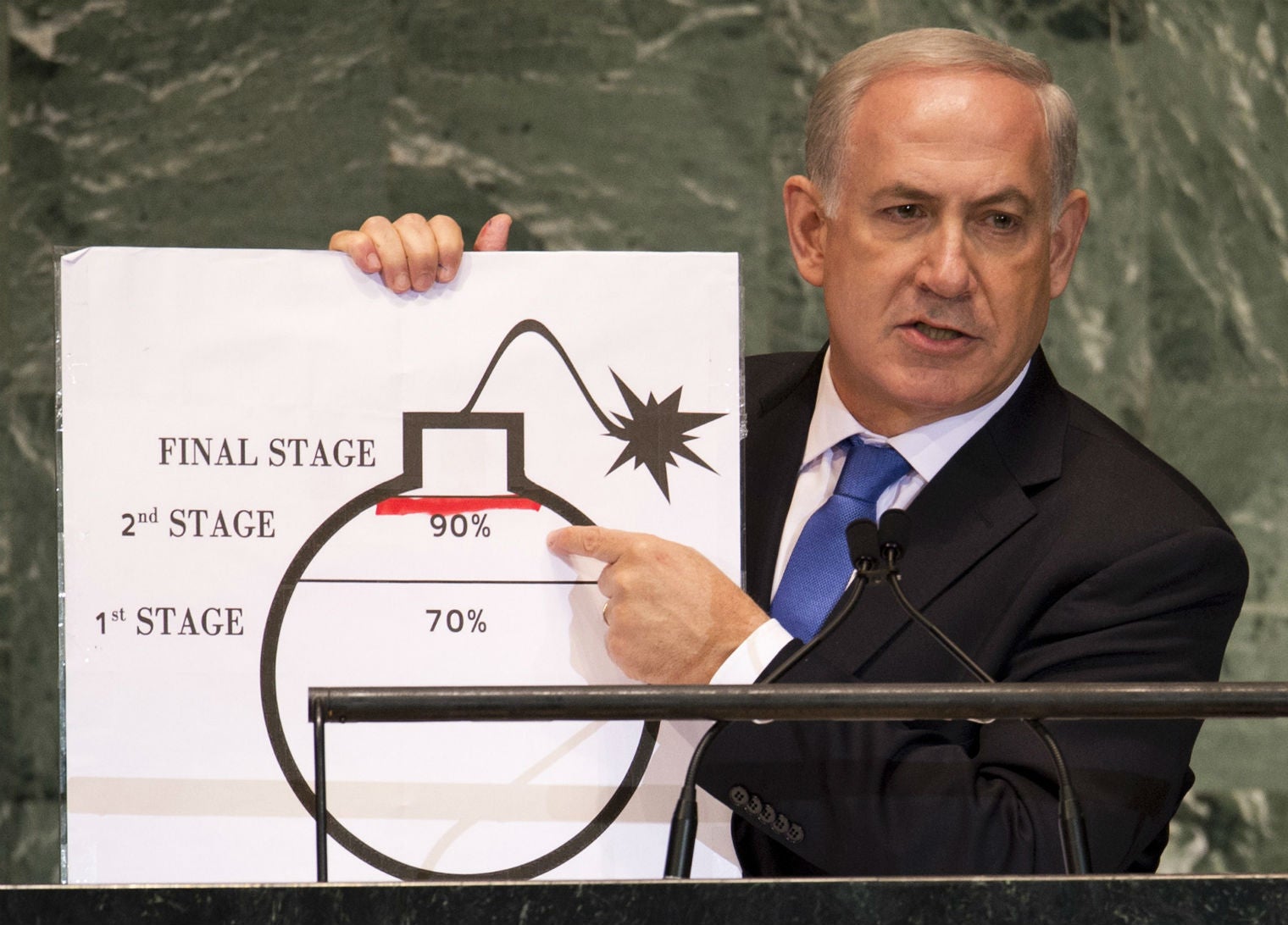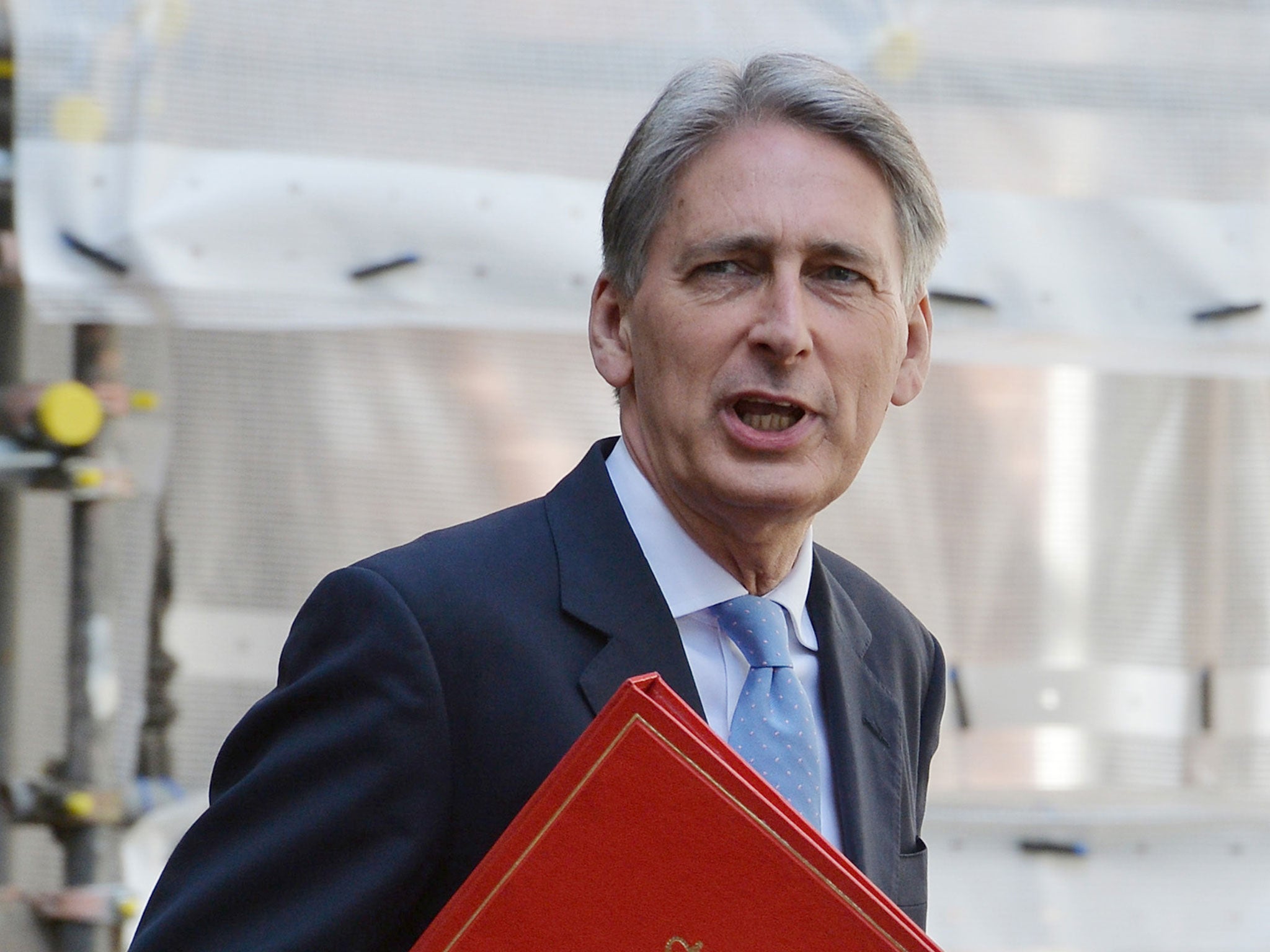Your support helps us to tell the story
From reproductive rights to climate change to Big Tech, The Independent is on the ground when the story is developing. Whether it's investigating the financials of Elon Musk's pro-Trump PAC or producing our latest documentary, 'The A Word', which shines a light on the American women fighting for reproductive rights, we know how important it is to parse out the facts from the messaging.
At such a critical moment in US history, we need reporters on the ground. Your donation allows us to keep sending journalists to speak to both sides of the story.
The Independent is trusted by Americans across the entire political spectrum. And unlike many other quality news outlets, we choose not to lock Americans out of our reporting and analysis with paywalls. We believe quality journalism should be available to everyone, paid for by those who can afford it.
Your support makes all the difference.Israel wants a “permanent stand-off” with Iran and would reject any deal on the country’s nuclear programme, Britain’s Foreign Secretary has said.
Philip Hammond said Israel’s stance on its neighbour was against the interests of the UK and of the wider Middle East region as a whole.
“The question you have to ask yourself is what kind of a deal would have been welcomed in Tel Aviv?” he told Parliament.
“The answer, of course, is that Israel doesn’t want any deal with Iran. Israel wants a permanent state of stand-off and I don’t believe that’s in the interest of the region, I don’t believe it’s in our interest.”
Mr Hammond warned that failure to reach a deal would have ultimately led to military conflict.
“The real alternative to a deal that prevents Iran building a nuclear bomb almost at some stage would have been war. What we have averted with this agreement is the threat and a prospect of a war.”

In response to a question from an MP, Mr Hammond also noted that the head of Israel’s secret service Mossad believed that the failure to resolve the Palestinian conflict was a bigger threat to the country’s security than Iran.
“Now that he’s reminded me of that I’ll certainly put it in my briefing note for the meeting [with Israeli government figures]” he said.
The Foreign Secretary’s comments are the latest in a line of indications that relations between Israel and the West are cooling.
Last month the British government condemned Israel’s “forced resettlement” of ethnic minority groups.
In March it also accused the Middle Eastern state of illegally colonising Palestinian territory under the guise of moving into areas to protect historic archaeological sites.
In the US, the White House was incensed after opposition politicians unilaterally invited Israeli president Benjamin Netanyahu to address Congress arguing against a deal with Iran.
The US Government later warned that Israel “cannot maintain military control of another people indefinitely” and said the illegal occupation of the Palestinian territories had to end.
Israel has argued again that Iran is an aggressor and that the West should not do a deal with it over its nuclear programme. Iran says its programme is for peaceful purposes.
“If Iran's aggression is left unchecked, more will surely follow,” PM Benjamin Netanyahu said in his speech to the US Congress.

Join our commenting forum
Join thought-provoking conversations, follow other Independent readers and see their replies
Comments